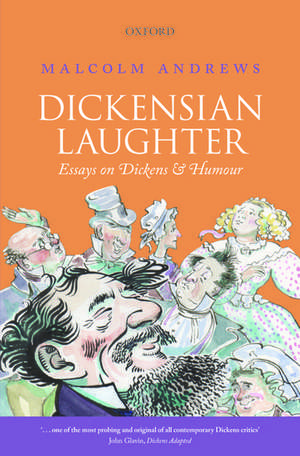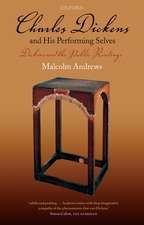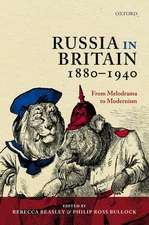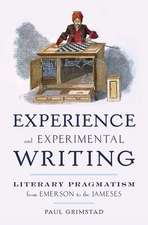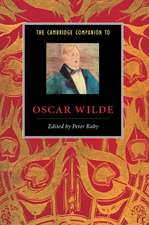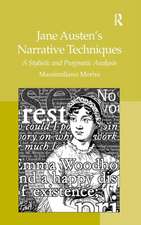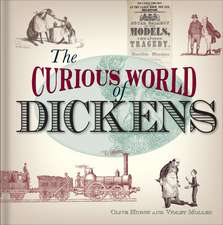Dickensian Laughter: Essays on Dickens and Humour
Autor Malcolm Andrewsen Limba Engleză Paperback – 9 iun 2016
| Toate formatele și edițiile | Preț | Express |
|---|---|---|
| Paperback (1) | 184.66 lei 10-16 zile | |
| OUP OXFORD – 9 iun 2016 | 184.66 lei 10-16 zile | |
| Hardback (1) | 310.99 lei 31-37 zile | |
| Oxford University Press – 18 sep 2013 | 310.99 lei 31-37 zile |
Preț: 184.66 lei
Preț vechi: 205.10 lei
-10% Nou
Puncte Express: 277
Preț estimativ în valută:
35.35€ • 38.41$ • 29.71£
35.35€ • 38.41$ • 29.71£
Carte disponibilă
Livrare economică 21-27 martie
Preluare comenzi: 021 569.72.76
Specificații
ISBN-13: 9780198728047
ISBN-10: 0198728042
Pagini: 208
Ilustrații: 11 black-and-white halftones
Dimensiuni: 141 x 195 x 13 mm
Greutate: 0.16 kg
Editura: OUP OXFORD
Colecția OUP Oxford
Locul publicării:Oxford, United Kingdom
ISBN-10: 0198728042
Pagini: 208
Ilustrații: 11 black-and-white halftones
Dimensiuni: 141 x 195 x 13 mm
Greutate: 0.16 kg
Editura: OUP OXFORD
Colecția OUP Oxford
Locul publicării:Oxford, United Kingdom
Recenzii
...the study is plentifully illustrated with some of the funniest passages in Dickens's writing-ranging expertly across novels, letters and journalism. Andrews leaves Dickens to tell his own jokes and then calls our attention to what makes them work. It is enjoyable reading ... His [Andrew's] own generous book has an enthusiasm equally infectious.
Malcolm Andrews makes clear his deep knowledge, and also his great enjoyment, of Dickens. What makes this book so readable as well as informative is that his sheer delight in Dickens is infectious.
Malcolm Andrews makes clear his deep knowledge, and also his great enjoyment, of Dickens. What makes this book so readable as well as informative is that his sheer delight in Dickens is infectious.
Notă biografică
Malcom Andrews is an Emeritus Professor of Victorian and Visual Studies at the University of Kent. He is the editor of the journal The Dickensian and author of a number of books on Dickens, including Dickens and the Grown-Up Child and Charles Dickens and his Performing Selves. Andrews also writes on landscape and literature and painting; this interest is expressed in his books The Search for the Picturesque and Landscape and Western Art. He is married, with three children, and lives in Canterbury, UK.
